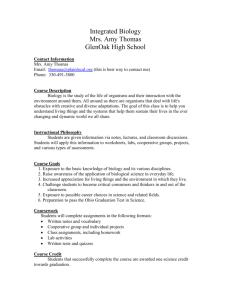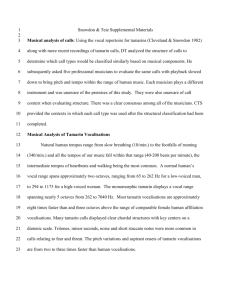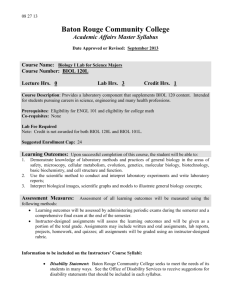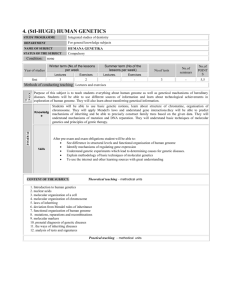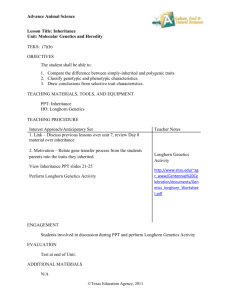Syllabus-Plant Genetics - Faculty Members Websites
advertisement
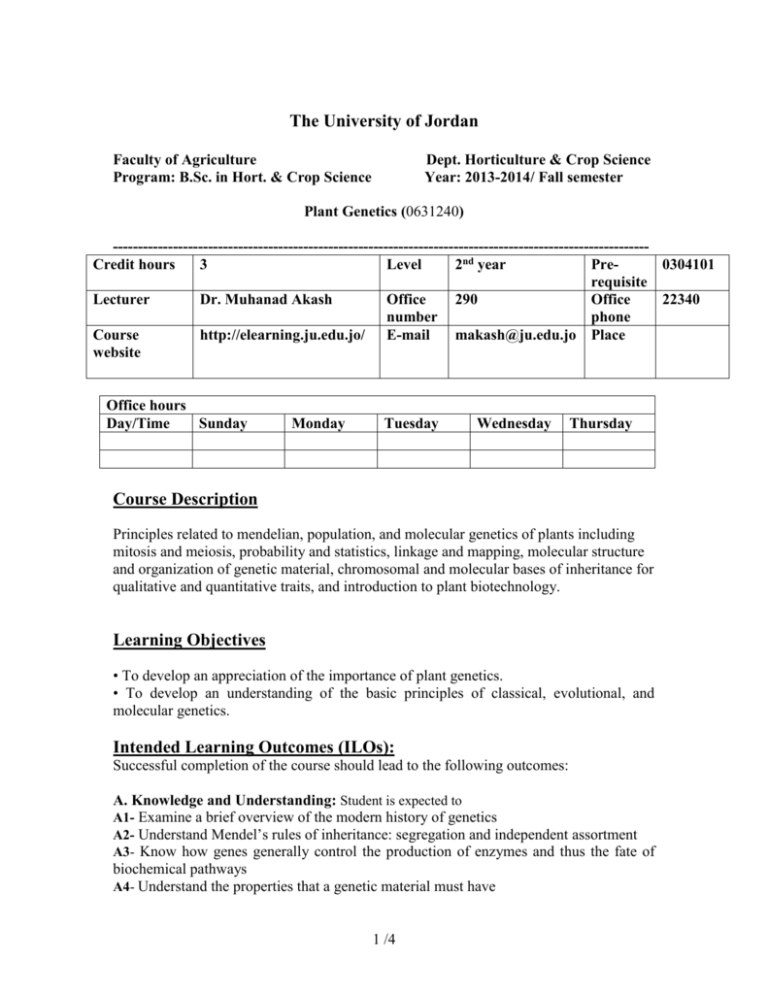
The University of Jordan Faculty of Agriculture Program: B.Sc. in Hort. & Crop Science Dept. Horticulture & Crop Science Year: 2013-2014/ Fall semester Plant Genetics (0631240) ----------------------------------------------------------------------------------------------------------Credit hours 3 Level 2nd year Pre0304101 requisite Lecturer Dr. Muhanad Akash Office 290 Office 22340 number phone Course http://elearning.ju.edu.jo/ E-mail makash@ju.edu.jo Place website Office hours Day/Time Sunday Monday Tuesday Wednesday Thursday Course Description Principles related to mendelian, population, and molecular genetics of plants including mitosis and meiosis, probability and statistics, linkage and mapping, molecular structure and organization of genetic material, chromosomal and molecular bases of inheritance for qualitative and quantitative traits, and introduction to plant biotechnology. Learning Objectives • To develop an appreciation of the importance of plant genetics. • To develop an understanding of the basic principles of classical, evolutional, and molecular genetics. Intended Learning Outcomes (ILOs): Successful completion of the course should lead to the following outcomes: A. Knowledge and Understanding: Student is expected to A1- Examine a brief overview of the modern history of genetics A2- Understand Mendel’s rules of inheritance: segregation and independent assortment A3- Know how genes generally control the production of enzymes and thus the fate of biochemical pathways A4- Understand the properties that a genetic material must have 1 /4 A5- Understand the chromosomal bases of inheritance A6- Understand the molecular bases of inheritance A7- Examine genomics, biotechnology, and recombinant DNA A8-Understand the patterns of inheritance of phenotypic traits B. Intellectual Analytical and Cognitive Skills: Student is expected to B1- Appreciate the role that plant genetic has played and continues to play in the world economy and culture B2- Interpret results efficiently C. Subject- Specific Skills: Students is expected to C1- Understand the overall importance of plant genetics for our existence D. Transferable Key Skills: Students is expected to D1- Emphasis on genetical research problems D2- Improve and practice scientific analysis and interpretation ILOs: Learning and Evaluation Methods ILO/s Learning Methods Evaluation Methods A. Knowledge and Understanding (A1-A8) B. Intellectual Analytical and Cognitive Skills (B1-B2) C. Subject Specific Skills (C1) D.Transferable Key Skills (D1-D2) Lectures and Discussions Exam, assignments Lectures, Homework and Assignments Exam, assignments Lectures, Homework Exam , assignments Lectures, Assignments Exam , assignments 2 /4 Course Contents Content Reference Week ILO/s 1. An introduction to modern genetics 2. Mendel’s Principles 3. Mitosis and Meiosis 4. Probability and Statistics 5. Linkage and Mapping in Eukaryotes 6. Cytogenetics 7. Chemistry of the Gene Tamarin (2004) 1 Tamarin (2004) Tamarin (2004) Tamarin (2004) Tamarin (2004) 2, 3 3, 4 5 6, 7 A1,B2,C1, D1 A2 A2 A4,B2,D2 A5,B2,D2 Tamarin (2004) Tamarin (2004), Campbell Biology (2013) Tamarin (2004) , Campbell Biology (2013) Tamarin (2004) , Campbell Biology (2013) Tamarin (2004) , Campbell Biology (2013) Tamarin (2004) Tamarin (2004) 7, 8 9 A5 A3,A6 10,11 A6 12 A6 13-15 A7,B2,C1, D1,D2 A8,D1 A8 8. Transcription & Translation 9. DNA: Its Mutation, Repair, and Recombination 10. Genomics, Biotechnology, and Recombinant DNA 11. Non-Mendelian Inheritance 12. Quantitative Inheritance 15 16 Learning Methodology 1. Lectures: 2 per week (including one Midterm exam) 2. Duration: 16 weeks, 48 hours in total 3. Assignments: to be notified Evaluation Evaluation Midterm Exam Assignments Homework Final Exam Point % 30 10 10 50 3 /4 Date Main Reference/s: - Principles of Genetics, 7th edition. 2004. Tamarin. R. H. McGraw Hill Companies References: - Campbell Biology, 10th edition. 2013. Neil A. Campbell and Jane B. Reece. Benjamin Cumming's Publishing Company Notes: Concerns or complaints should be expressed in the first instance to the module lecturer; if no resolution is forthcoming, then the issue should be brought to the attention of the module coordinator (for multiple sections) who will take the concerns to the module representative meeting. Thereafter, problems are dealt with by the Department Chair and if still unresolved the Dean and then ultimately the Vice President. For final complaints, there will be a committee to review grading the final exam. For more details on University regulations please visit: http://www.ju.edu.jo/rules/index.htm 4 /4


